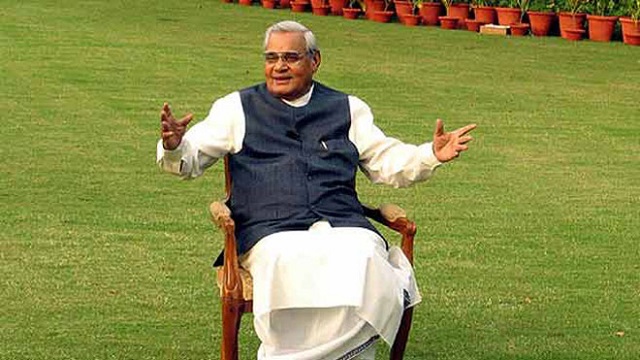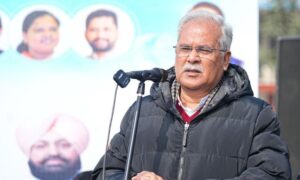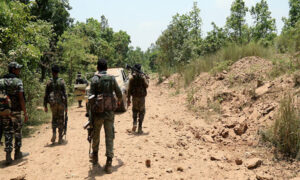
File Picture
On a late evening in December 2006, having missed the last bus to my destination, I had my dinner at a road side Dhaba near Chandikhol (in Jajpur district of Odisha) on then NH 5, joining Kolkata with Chennai, with a request to the owner of the dhaba to help me get a lift up to Bhubaneswar. He obliged. And I travelled in a truck up to Cuttack.
During those 45 minutes of 30 odd km drive, I intentionally delved into a general conversation with the fifty-something fellow at the wheel, curious to know a bit about his life, family and profession. “Poverty didn’t allow me to study beyond eighth standard. But, my son is going to college while daughter will sit for her high school board examination, early next year,” he said, his eyes fixed on the road. “Earlier, I had to spend lot of time on the road, but despite the pain my income was meager. But Saab, today, I am able to make more trips, pain is less and more importantly, get to earn more, thanks to the superb roads built by Atal Bihari Vajpayee. Vajpayee aama paain Bhagbaan,” (Vajpayee is god for us), he added.
Post Independence, no prime minister has ruled the hearts of more Indian’s than Vajpayee, who, during his tenures of just over six years, tried relentlessly and succeeded in, bringing about a positive change in almost every sector.
Till he assumed the PM’s office, in his mid 70’s, Vajpayee was known as a gifted poet, brilliant orator, parliamentarian par excellence and champion diplomat. In the next six years, the world discovered his other traits: reformer, bold and decisive leader, capable administrator and above all a true statesman. Yet humble, as always.
One of his most visible contributions is the Golden Quadrilateral and the North-South & East-West Corridor projects. In order to give a push to the economy, create better infrastructure and jobs, facilitate farmers, faster movement of goods and commodities, quick transfer of patients for medical attention as well as minimize wastage of fuel etc. the NDA government built 4/6 lane highways between top metropolitan cities of Delhi, Mumbai, Chennai and Kolkata as well as from Srinagar to Kanyakumari and Porbandar to Silchar. Villages were also joined by concrete roads (Pradhan Mantri Gram Sadak Yojna). The rest is history.
In Indian politics, where, the mantra has been ‘power first- country later’, political compulsions often override national interests, Vajpayee was an aberration. Once he was convinced that a step was needed to be taken in the interest of the country, he would go for it- come what may. Perhaps, the poet in Vajpayee encouraged him to venture into politically forbidden territories. Gracefully. And with a smile.
Despite the compulsions of coalition government, he whole heartedly championed economic reforms such as disinvestment of loss making public sector units, sparked the telecom revolution by replacing fixed licenses with revenue sharing, and laid the groundwork for a civil aviation boom. The NDA government’s fiscal responsibility act, for the first time in the country, attempted to chain profligate politicians to sober spending habits.
Not only that. Knowing fully-well the intense international pressure his government was going to face, he went ahead with the Pokhran nuclear tests on May 11 and 13, 1998 that foxed the US and surprised the other powerful players. It established Vajpayee’s strength as a leader who could take tough decisions even in troubled political weather.
In a breath-taking move which left all astounded, he led a bus Yatra in February 1999 from Amritsar to Lahore. Whether his initiatives for peaceful bilateral relations with Pakistan yielded the desired results is a different story. However, when Pakistan backstabbed India leading to the Kargil war, Vajpayee, despite cautions of the security agencies, visited Indian soldiers in forward areas.
The way he fulfilled the poll promises and went about the creation of Uttaranchal (now Uttarakhand), Chhattisgarh and Jharkhand carved out of the three of the biggest as well as politically sensitive states, Uttar Pradesh, Madhya Pradesh and Bihar respectively, requires special mention. It was a herculean task considering the critical issues surrounding and staggering numbers involved: 360 million people in the three states that account for 179 (nearly one third of the total) Lok Sabha seats. However, the NDA government, in a measured, calculated and well thought of way, the base of which was ‘utter sensitivity to each individual’s interest, ensured that each state got its due share, peacefully without any socio-political discrimination or economic injustice.
For a true leader, the country and its people are supreme, above everything. Perhaps, that’s why he drew an extraordinary line by going off the track to have, not a politician but scientist of eminence, APJ Abdul Kalam as the President of the country. Needless to say that even after his death, Kalam continues to inspire millions of young minds in the country and will do so in the future too. Like Vajpayee.
And, perhaps that’s why, he waited to breathe his last a day after the country celebrated its 72nd Independence day, so that the joyous spirit of the people wasn’t dampened.


















